Bangladeshi migrant workers’ poetry inspires new dance piece
For contemporary dance choreographer Raka Maitra, literature has always been the starting point for many of her works, such as those written by Rabindranath Tagore and Omar Khayyam. But there is something a bit more special about her latest show, where she is working with newly minted poetry written by Singapore’s migrant workers.
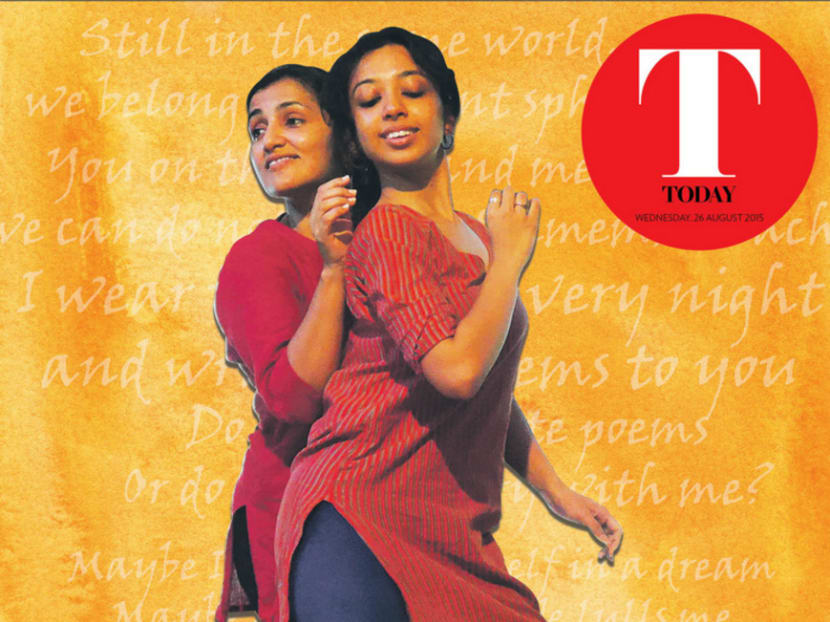
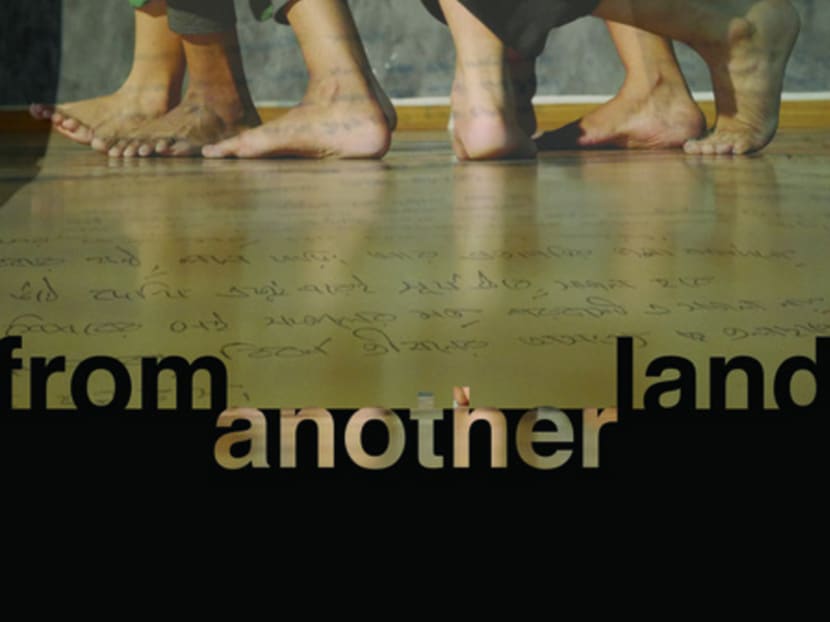
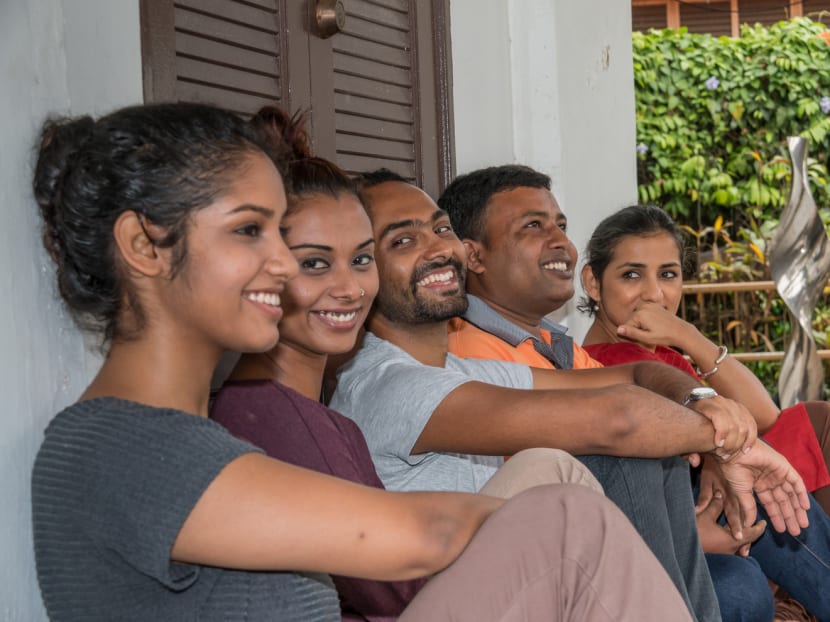
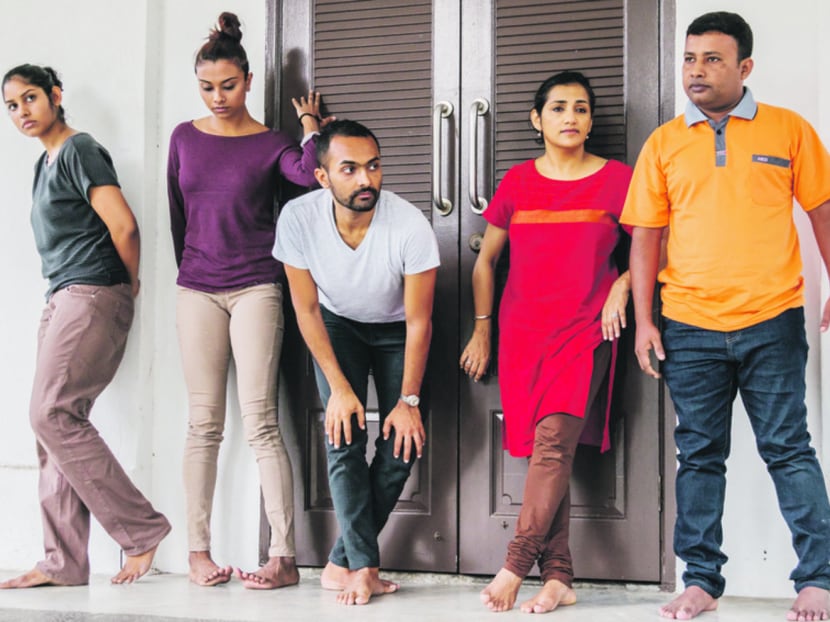
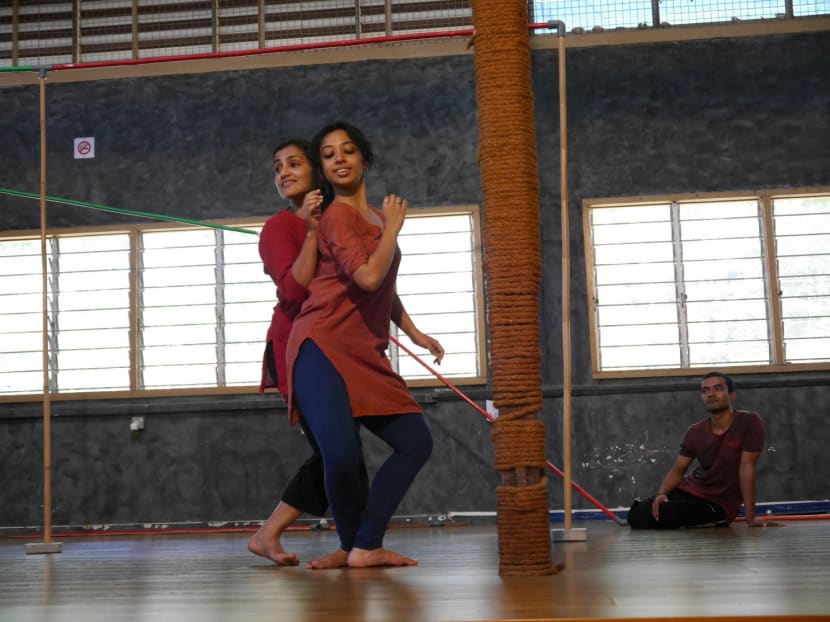
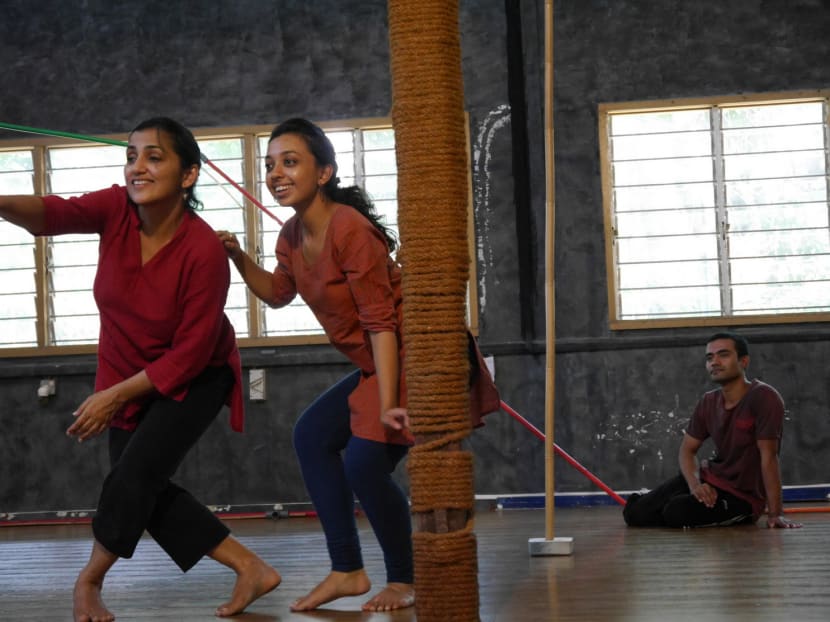
For contemporary dance choreographer Raka Maitra, literature has always been the starting point for many of her works, such as those written by Rabindranath Tagore and Omar Khayyam. But there is something a bit more special about her latest show, where she is working with newly minted poetry written by Singapore’s migrant workers.
Titled From Another Land and presented under the Esplanade’s Raga series, to be held on Sept 11 and 12, Maitra’s company Chowk will be presenting a performance based on her Odissi-inspired dance vocabulary, which will also incorporate poetry readings in Bengali by two poet-workers, and an English translation by multidisciplinary artist Bani Haykal.
Maitra had been inspired to do the collaboration after attending the first Migrant Workers Poetry Competition at the National Library last year. “I was amazed at the depth of the poems and was really blown away,” she said, adding that she then got in touch with the event organiser Shivaji Das for a list of submitted poems.
In the end, she roped in the two poets who had bagged first and second prize, respectively, at the competition: Construction supervisor and freelance journalist Zakir Hussain Khokon will be reading his suite Pocket 1, 2 and 3, while shipyard worker Rajib Shil Jibon will be reading Shades Of Light And Dark.
The poems were written in a simple manner, but had a lot of depth, explained Maitra. Zakir’s three poems talk about his relationship with his wife, son and daughter, “and tells the story of all (migrant) workers”, she said, adding that a poignant line in Rajib’s poem, about a kite looking for its string, reflected the globalised world. “Everywhere we go, we’re looking for a connection to our homeland; that’s why we stick to our own communities when we go away,” she said.
And in a sense, that is the other connection Maitra felt with the poets and their poems — the two were Bangladeshis who had written in Bengali, a language that resonated with the West Bengal-born Singaporean artist. “I grew up with grandparents who were originally from Bangladesh. I would hear stories about the country, the landscape, the Partition and how unfair it was,” said Maitra, referring to the events of 1947, when the colonial British divided India, resulting in the formation of Pakistan, and later, Bangladesh.
“That Partition was based on religion, but otherwise, our culture, our love of literature and poets, are the same. If I see people from Bangladesh, I connect with them — we’re basically the same people,” she said, recalling how, after moving to Singapore in 2004, she would often go to Little India and be comforted by the sound of conversations in Bengali.
For the past few months, the poets have been rehearsing with Chowk every Sunday — and according to Maitra, there’s nothing tokenistic or patronising about this collaboration. In fact, it is the furthest thing from her mind.
“They have very hard lives here, and sometimes all they survive on are their phone calls and photographs and memories (of their families, but) I don’t want to show their hard lives onstage. I want to show how educated and how deep their thoughts and their culture are,” she said.
“We have this attitude of pigeonholing people, a very urban way of looking at things — when we think of workers, we’ll be sympathetic to them, we’ll do charity, but we don’t realise the depth of their culture. That has been totally invisible.”
And it would also be best to dismiss notions that these are the works of clueless amateurs. “They’re published poets in Bangladesh, so they are, actually, in a sense, professionals,” Maitra pointed out. “It’s just that they do something else to support themselves, which a lot of other writers do right? Especially if you come from a Third World country where there is little place or support for art.”
And besides, she added: “The Bengali culture is such that we do theatre from a very early age. Every gathering is about singing, reciting, so it’s a part of your life. They may not be professionally trained to act but they have been performing from a very early age.”
From Another Land runs on Sept 11 and 12, 8pm, Esplanade Theatre Studio. Tickets at S$25 from SISTIC.







